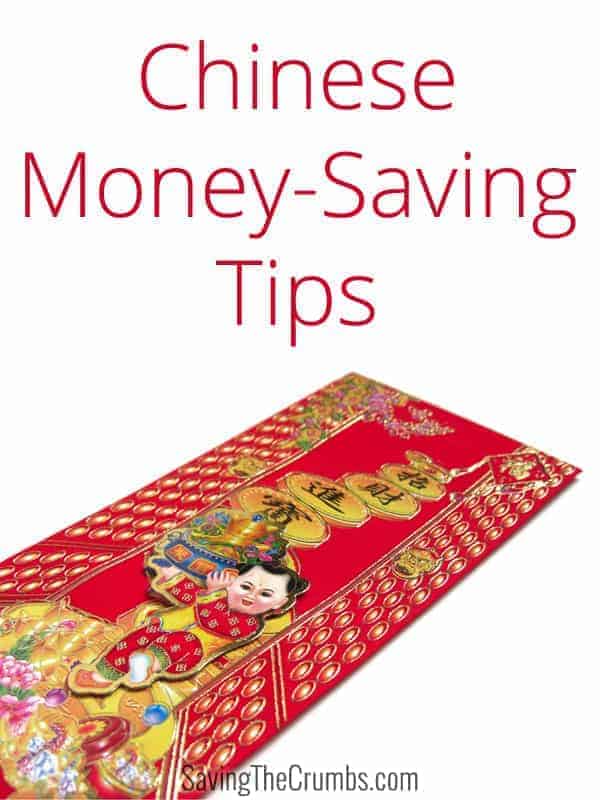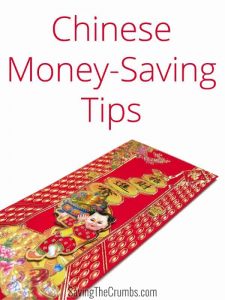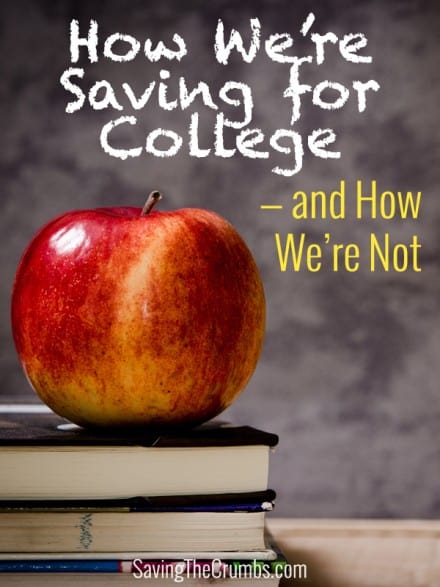Chinese are often accused of being cheapskates.
I admit it. Oftentimes, it’s true! (This admission does come with a tinge of pride, I must confess.)
Needless to say, we witnessed a lot of thrifty attributes modeled by our parents and other family members growing up. While some of them used to make us cringe in embarrassment or secretly wish that we could have it easy like all the white kids at school, we’ve grown to appreciate some of the wise ways of the East when it comes to financial management. So today, we’d like to expose 10 tenets of the secret way of the Chinese cheapskate that we picked up from our families growing up.
- Love the Freebies – Always take the free samples at Costco, always take the free amenities in hotels, always take some extra condiment packets from fast food joints. But just don’t let things get out of hand in taking things that you aren’t supposed to! (Small hotel lotions and shampoos are fine to take, but leave the pillows, sheets, and comforters!)
- Eat At Home (& Pack Leftovers for Lunch) – Home cooked meals are a way of life for most Asian cultures, it’s great for family bonding but it’s also good for the pocketbook. Moreover, those tasty leftovers make the best lunches to bring to school or work. My lunches were always the envy of my pals during lunchtime all through school.
- Haggle ‘til It Hurts – It’s the Chinese way. You always try to haggle for a bargain. Everywhere. Even at department stores. You know you’ve mastered the art when the store manager still remembers you a decade later. (True story about a certain member of my family who will remain nameless.)
- Heating and Cooling is for Sissies – Never turn on the A/C until you are about to pass out from heat stroke, and don’t waste money heating the house when everyone’s in bed at night. Both Deb and I recall periods in our childhood where, before school each morning in the winter, we had to practice piano wearing gloves and the violin strings felt like knives digging into our frozen fingers because the heat wasn’t on. If we ever have kids, they’ve been warned.
- Buffets are the Best – It’s already hard enough to decide where to eat, and once I get there, how do I pick what to try on the menu? I want to try them all! So enter the Chinese buffet. I get to try everything and have as much as I’d like. Moreover, the astute Chinese buffet-goer knows to bypass the low-cost stuff that can be had anywhere else (prepackaged iceberg lettuce salad?!), but load up on the expensive stuff that’s hard to have at home. (Hello, sushi bar!) Oh, and always starve yourself by fasting before going in order to get the most money’s worth. (What? You mean you don’t do that already?!)
- Never Judge A Market By its Appearance – Chinese markets often have boxes precariously stacked to unsafe heights, the floors might be slippery with fish guts from the seafood section, rotten produce might be mixed in with the fresh, and there might even be a few flies buzzing around. But they’re usually packed with people! The Chinese know where to find the good prices, good variety, and good quality. It’s not in the sterile aisles of the standard western supermarket, that’s for sure!
- Gifts are Recyclable – The Chinese have a tradition of giving children money in red envelopes during Chinese New Year. When I was too young to know the difference, my parents would swap money I received from one family into a new red envelope to give to someone else’s kid. A pretty efficient economic system, if you ask me! Birthday gifts and Christmas gifts all got similar treatment. A gift received for this birthday might become someone else’s gift for Christmas.
- Disposable Stuff Don’t Have to be Disposed – Newspapers are good for lining drawers. Cool Whip containers are free Tupperware. Glass jars are more valuable than the stuff they had inside. Plastic bags are great as raingear to keep water off your head or to keep your feet dry. Plastic water bottles are good for refills, but also great for little boys with small bladders on long road trips.
- Cover Stuff Up – In order to keep stuff looking new, Chinese people love to cover them up to protect them. “Leave the plastic film over that new iPhone as long as you can!” (Who cares if the touch screen doesn’t work that way?!) “Wrap the covers of your books with paper!” (Doesn’t matter that you won’t be able to identify what book it is anymore!) “Cover the couches with sheets so they don’t fade!” (My parent’s living room looks like a museum under renovation when no guests are around, but those 20-year old couches underneath still look brand new!)
- Matching is Not a Necessity – Matching living room furniture with coordinated paint, carpet, and artwork on the walls? Never crossed our minds. Buying a full bedroom suite with matching sheets and décor? What is that? Chinese buy what’s on sale and if things match, we exclaim, “Wow! What a coincidence!” I guess it doesn’t really matter since everything’s going to be covered up anyway!
While we haven’t adopted all of these tenets from our parents’ generation into our lifestyle today, we can appreciate a lot of the underlying principles. Take care of your stuff to keep them new, learn to reuse and reduce waste, don’t worry as much about aesthetics and luxury as much as function and quality, etc. But I know we’ve only listed a few here.
What other “unique” money-saving tips are there from your family or culture? Share with us in the comments below!
*In case you’re hungry for more, these videos express these thoughts far better than me. Enjoy!







